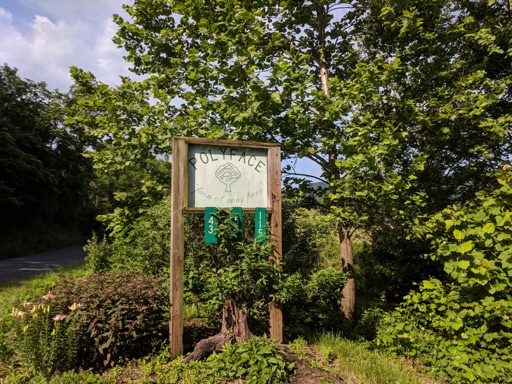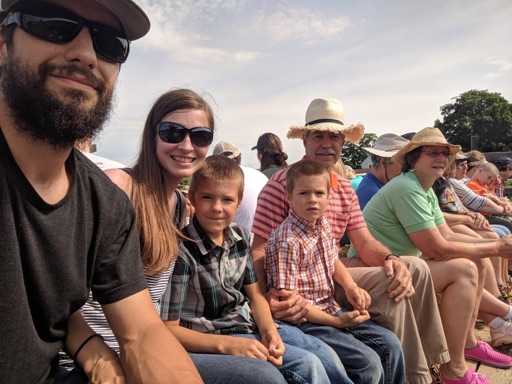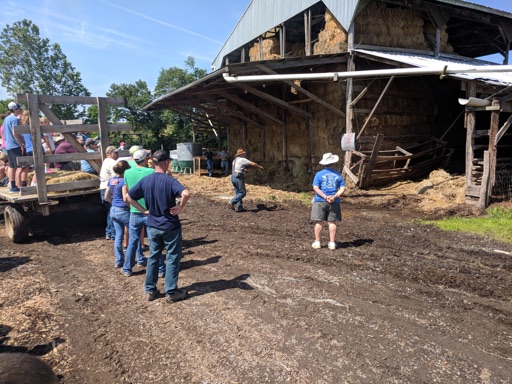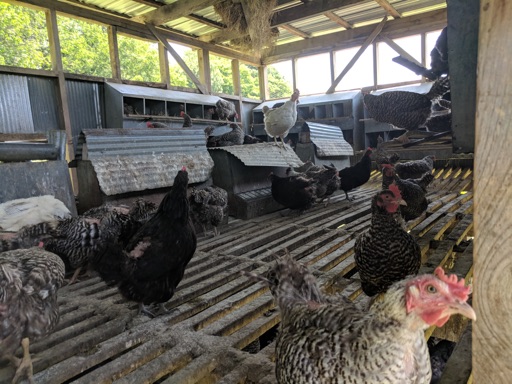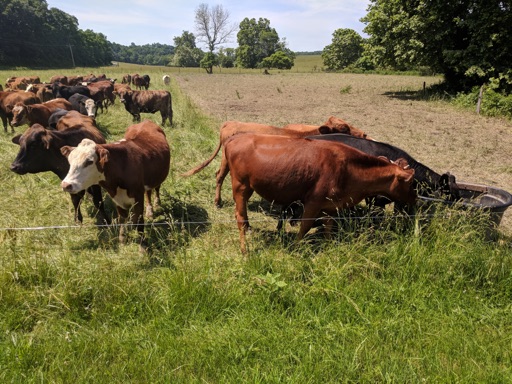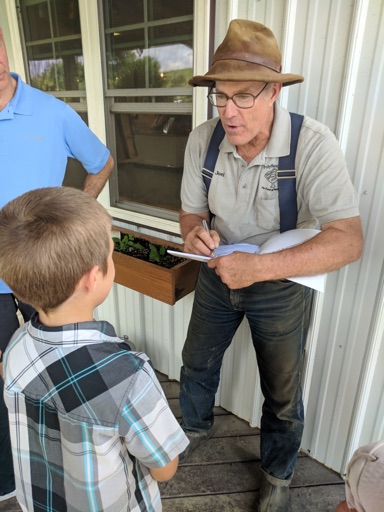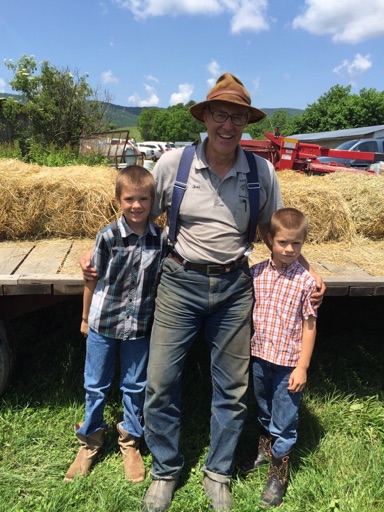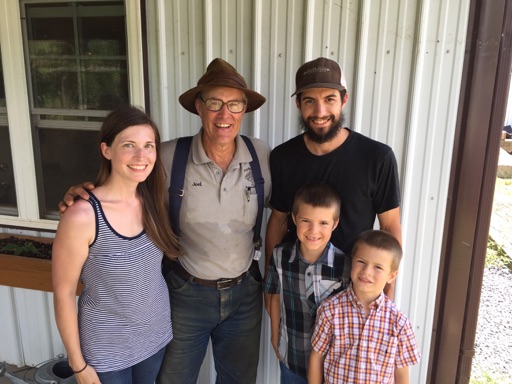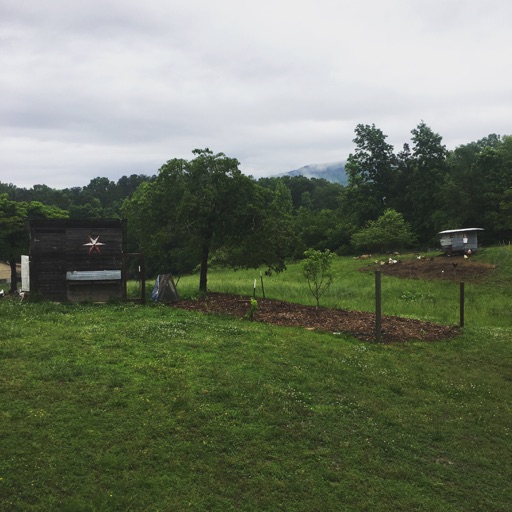
Living a homesteading lifestyle is not necessarily an easy lifestyle. There is daily work, manure, animals who depend upon you for everything and even the risk of losing animals.
Why would our family choose a lifestyle that involves more work, mess and potential heart ache when we could continue living a simple, quiet little life on a small lot with no extra responsibilities?
Before we married in 2006, we talked about what we wanted our life together to look like. One thing we knew for certain was that we desired to have a family and for me be able to to stay home with our children. The other desire of our hearts was to live on a farm.
While we dreamed of living on a farm, it was over a decade before that dream finally became our reality. In the meantime, we did what we could where we were.
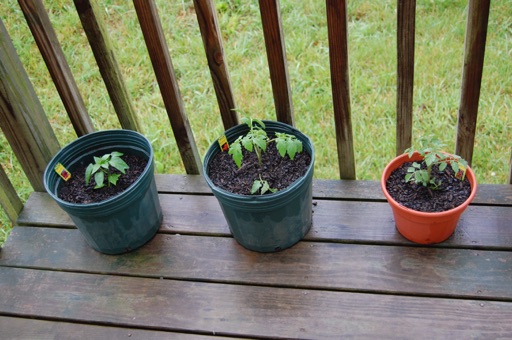
In our first apartment after college, we raised a few vegetables in containers on our deck.
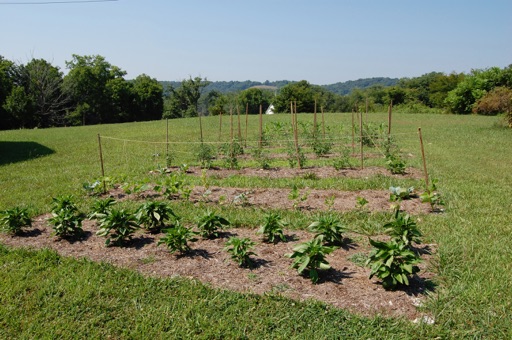
In our first house, we had a large lot and had a nice sized garden raising tomatoes, peppers, cantaloupe and other vegetables.
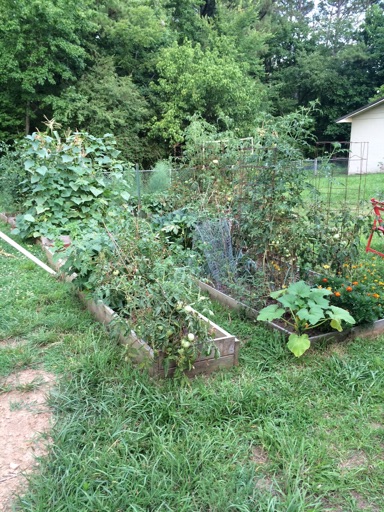
The house we lived in previously to this one was on an acre and we had several raised beds, fruit trees, strawberries and even had chickens for awhile by using the adjoining 5+ acres that belonged to neighbors.
When were first married, we were eating a standard American diet (SAD). We thought nothing of drinking sodas, eating fast food, candy, cereals, packaged snacks and frozen dinners because that’s what we knew from growing up. As we began reading and studying about healthy lifestyles, especially after the birth of our first baby, we began making dietary changes, cutting most processed foods and sodas. As we learned more, we made more changes. We began to value pastured eggs and meats and local produce for their freshness and nutrient density. Then we began to desire the ability to raise as much of our own food as possible to nourish our growing children with the highest quality foods.
And as our children began to get older, our desire to live on a little bit of land grew stronger and we spent a couple years looking for a place that would fit our needs. We found a couple places that we really liked but we weren’t able to purchase.
When we found our property in 2017, it fit our needs. It was less than 20 minutes from John David’s work, a little over 5 acres that were mostly cleared and perfect for pasture, an existing barn, and a house that was under 2,000 square feet.
After purchasing our property and actually living here, we began to realize that all of the work that goes into raising our own food is worthwhile, meaningful work.

While homesteading isn’t easy because something always needs to be fed or watered and there’s always weeding and maintaining, it’s deeply fulfilling work. We are meeting our basic needs. Our efforts are rewarded with quality foods to nourish our family. Our goal in life isn’t just to do the least amount of work and live an easy life, we want our work to be meaningful.
As we’ve dreamed more over the past two years that we’ve lived here on our homestead, we realize that we desire to provide others with high quality foods and we’re beginning to do that with Weston’s egg business and we’ve also sold a few pastured meat birds.
There is also the desire to teach others to do what they can where they are and to share the things we know about raising food.
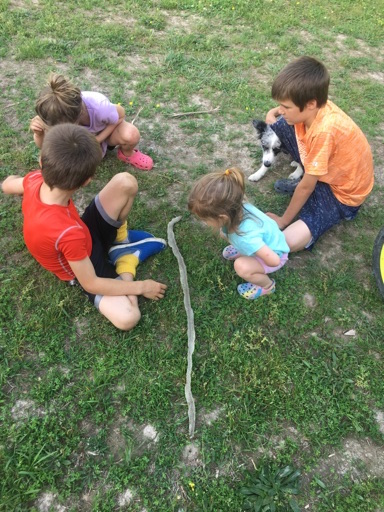
In addition to raising our own food and the work ethic that is developed, we also choose to live on a homestead to provide our children ample room to play, explore, create and learn.
We are educating our children at home and have a desire for them to love learning and we believe that time spent in nature and in connection with the rhythms of the seasons provide an excellent educational foundation for young children.
The homestead lifestyle isn’t for everyone. It is a lifestyle of commitment and work.
But, it’s just the right lifestyle for us.
—Rachel

